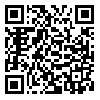Volume 24, Issue 92 (5-2024)
refahj 2024, 24(92): 79-116 |
Back to browse issues page
Ethics code: IR.ATU.REC.1399.079
Download citation:
BibTeX | RIS | EndNote | Medlars | ProCite | Reference Manager | RefWorks
Send citation to:



BibTeX | RIS | EndNote | Medlars | ProCite | Reference Manager | RefWorks
Send citation to:
Zahabi E, Naficy N, Ahmadnia S. (2024). Pregnancy and Inequality: Embryo to Newborn in the Womb of Health System. refahj. 24(92), : 3 doi:10.32598/refahj.24.92.4328.1
URL: http://refahj.uswr.ac.ir/article-1-4194-en.html
URL: http://refahj.uswr.ac.ir/article-1-4194-en.html
Abstract: (3892 Views)
Introduction: For over a century now, the medical discourse has played an important role in shaping the meanings and experiences of pregnancy and childbirth. In this research, a part of the mechanisms of the health system related to pregnancy and childbirth in the economic, political, social, and cultural context of contemporary Iran has been studied.
Method: Multi-field ethnography was conducted, and individual and group interviews were carried out in two public and private hospitals and several other treatment centers in different areas of Tehran and their online components during one year (2020-2021). The findings of this research are the result of the thematic analysis of the data obtained.
Findings: The hospital represents a part of the class system, hierarchy, and unbalanced power structure in the society outside the hospital. The pregnant body faces different types of judgments in the process of referral to delivery based on the economic and cultural class in which it is placed. The level of visibility and objectification of the pregnant body also varies depending on the type of hospital and the fees paid. The difference in economic and cultural capital and the imbalance of access to information also affect the views and decisions of families regarding the date of birth, pregnancy care, the birth process, and “unhealthy” and “abnormal” fetuses.
Discussion: Pregnant women are not a homogenous social class, and due to the intersection of the conditions in which they are placed, they are led to develop a kind of unequal nation whose coordinates are the first step in the quantity and quality of services offered by the health system.
Method: Multi-field ethnography was conducted, and individual and group interviews were carried out in two public and private hospitals and several other treatment centers in different areas of Tehran and their online components during one year (2020-2021). The findings of this research are the result of the thematic analysis of the data obtained.
Findings: The hospital represents a part of the class system, hierarchy, and unbalanced power structure in the society outside the hospital. The pregnant body faces different types of judgments in the process of referral to delivery based on the economic and cultural class in which it is placed. The level of visibility and objectification of the pregnant body also varies depending on the type of hospital and the fees paid. The difference in economic and cultural capital and the imbalance of access to information also affect the views and decisions of families regarding the date of birth, pregnancy care, the birth process, and “unhealthy” and “abnormal” fetuses.
Discussion: Pregnant women are not a homogenous social class, and due to the intersection of the conditions in which they are placed, they are led to develop a kind of unequal nation whose coordinates are the first step in the quantity and quality of services offered by the health system.
Article number: 3
Type of Study: orginal |
Received: 2023/04/6 | Accepted: 2023/11/11 | Published: 2024/05/3
Received: 2023/04/6 | Accepted: 2023/11/11 | Published: 2024/05/3
Send email to the article author
| Rights and permissions | |
 |
This work is licensed under a Creative Commons Attribution-NonCommercial 4.0 International License. |








